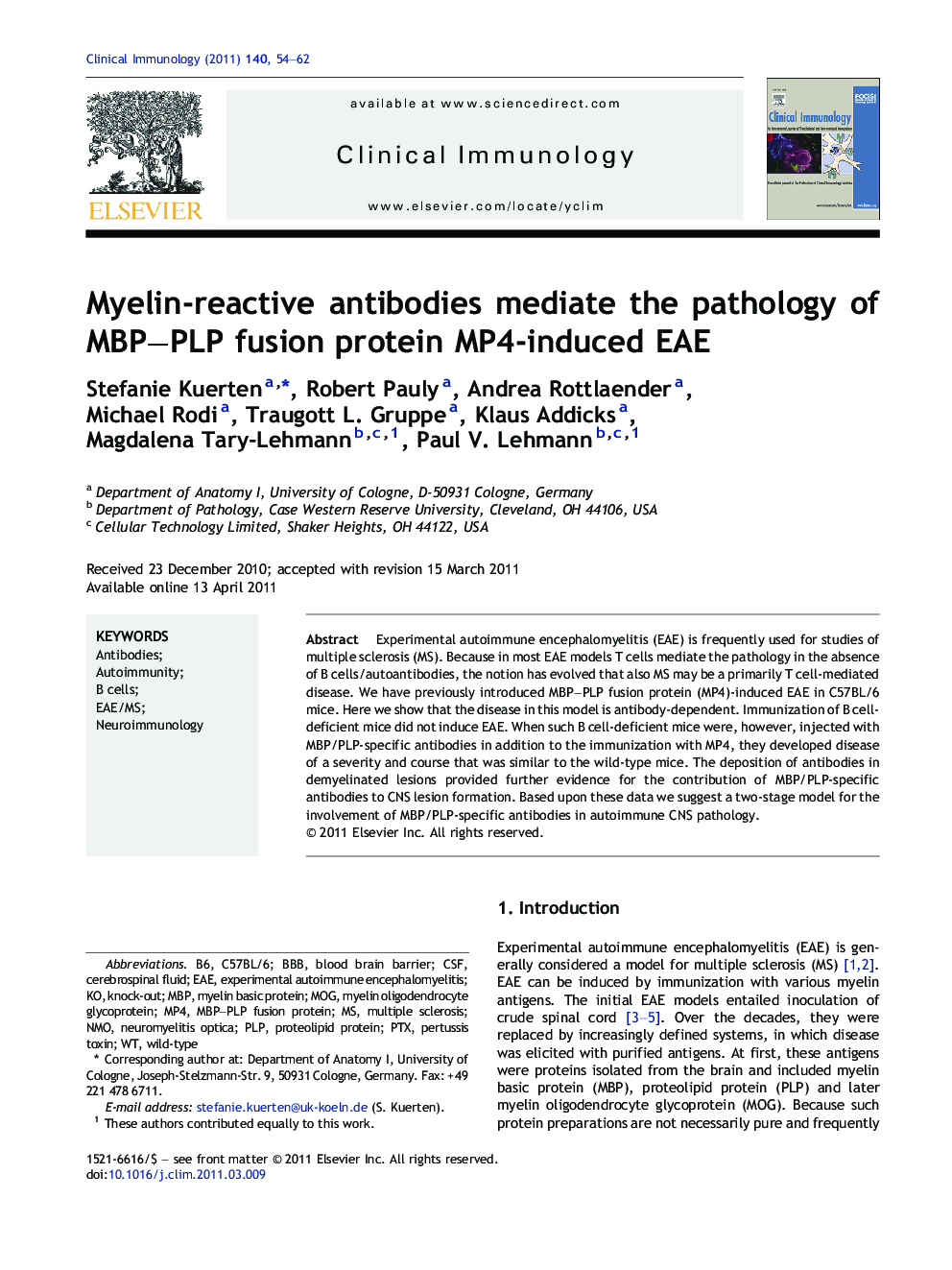| Article ID | Journal | Published Year | Pages | File Type |
|---|---|---|---|---|
| 3257275 | Clinical Immunology | 2011 | 9 Pages |
Experimental autoimmune encephalomyelitis (EAE) is frequently used for studies of multiple sclerosis (MS). Because in most EAE models T cells mediate the pathology in the absence of B cells/autoantibodies, the notion has evolved that also MS may be a primarily T cell-mediated disease. We have previously introduced MBP–PLP fusion protein (MP4)-induced EAE in C57BL/6 mice. Here we show that the disease in this model is antibody-dependent. Immunization of B cell-deficient mice did not induce EAE. When such B cell-deficient mice were, however, injected with MBP/PLP-specific antibodies in addition to the immunization with MP4, they developed disease of a severity and course that was similar to the wild-type mice. The deposition of antibodies in demyelinated lesions provided further evidence for the contribution of MBP/PLP-specific antibodies to CNS lesion formation. Based upon these data we suggest a two-stage model for the involvement of MBP/PLP-specific antibodies in autoimmune CNS pathology.
